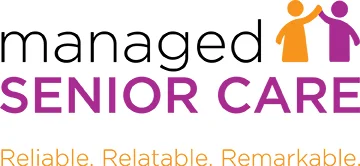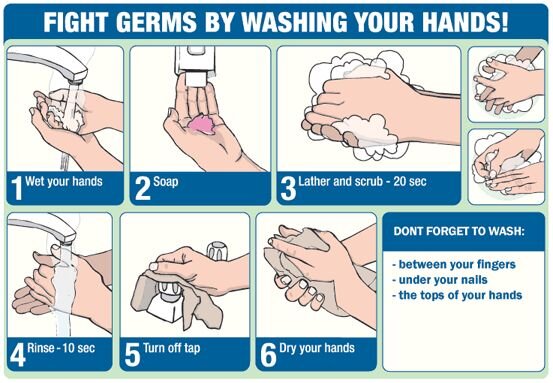Proper Handwashing
The best way to prevent the spread of a virus to your client is by immediately washing your hands when you come into your senior’s home.
Wash your Apron
Additionally, make sure you wear a clean apron with every client. Do not wear your purple apron into another client’s home without washing it in hot water. The coronavirus can live on your clothes.
The World Health Organization says that it's not certain yet how long the coronavirus lives on surfaces, but preliminary information indicates that it may "persist on surfaces for a few hours or up to several days."
Harvard Health notes that the virus is more likely to survive on hard services than softer ones like clothing fabric. Still, doctors suggest removing shoes and changing into clean clothes to prevent outside germs from coming into your home.
Disinfecting surfaces
Perform routine cleaning of frequently touched surfaces with detergent/disinfectant solution/wipe at least daily or when visibly dirty. Floors should be cleaned using a detergent solution.
Use of disinfection
Use freshly made bleach solution and follow manufacturer’s instructions for appropriate dilution and use (see link below for recipe). Wipe the area with bleach solution using disposable paper towels or a disposable cloth. Dispose of gloves and mask in a leak proof plastic bag. Wash hands well using soap and water and dry with disposable paper or single-use cloth towel. If water is unavailable, clean hands with alcohol-based hand rub.
Preparation of disinfectant solution
Gloves should be worn when handling and preparing bleach solutions. Protective eye wear should be worn in case of splashing. Bleach solution should be: made up daily used mainly on hard, non-porous surfaces (it can damage textiles and metals). Sufficient time is required to kill the virus, i.e., at least 10 minutes contact time
More information on Environmental cleaning and disinfection principles for COVID-19



